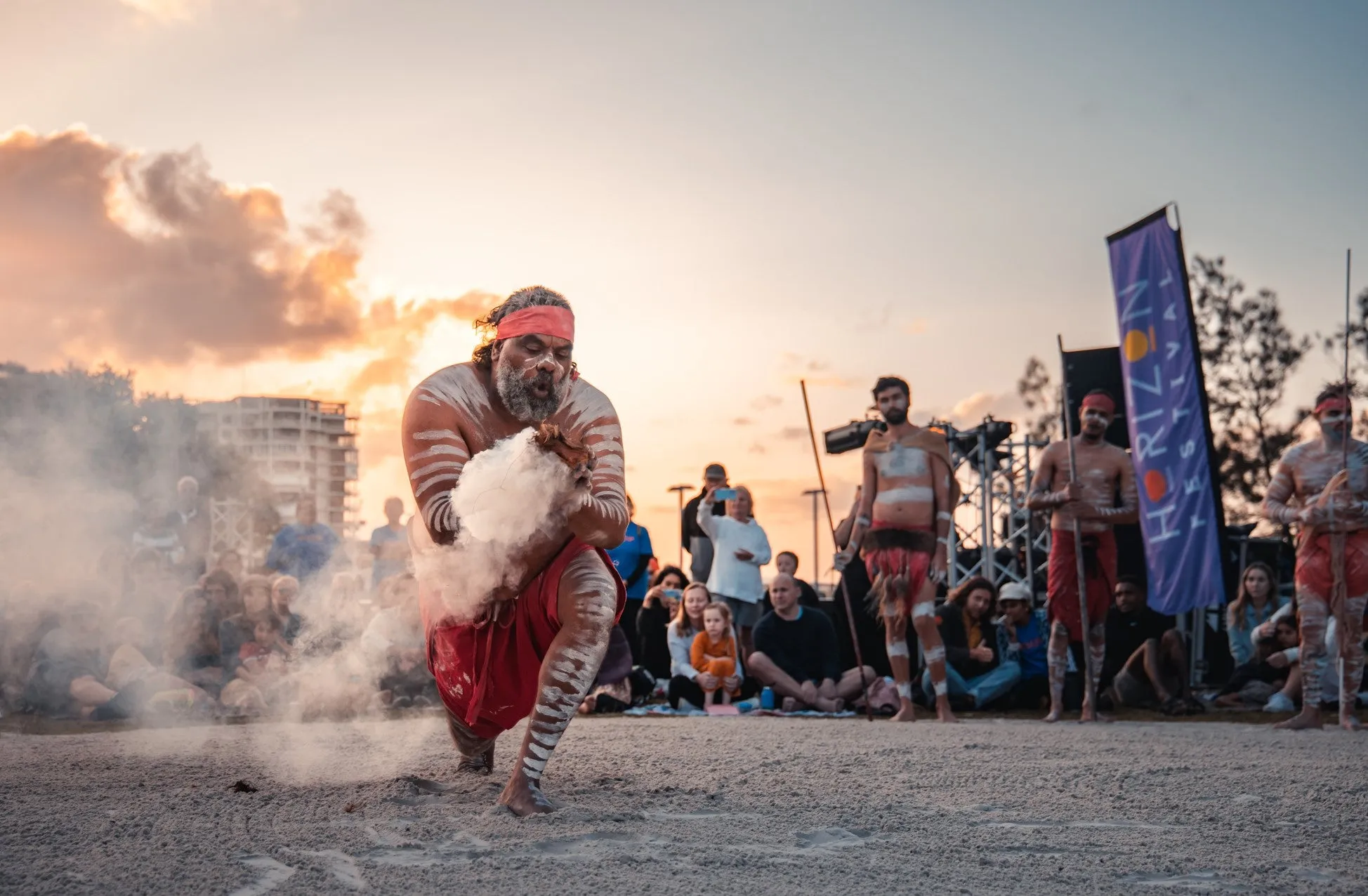Welcome to Country and Traditional Acknowledgement
Ceremonies and protocols are an important part of all cultures. By observing First Nations cultural protocols we can recognise and pay respect to Aboriginal and Torres Strait Islander people, culture and heritage and demonstrate recognition of First Nations people’s unique position in Australian society.

Council supports the practice of procuring 'Welcome to Country' from - and acknowledging Country of - the Traditional Custodians of the Sunshine Coast; the Kabi Kabi peoples and the Jinibara peoples.
If you wish to request expressions of interest for a Welcome to Country, please email the First Nations Partnerships team.
What is Welcome to Country?
What is Welcome to Country?
A “Welcome to Country” or “Traditional Welcome” is where the Traditional Custodians welcome people to their land at the beginning of a meeting, event or ceremony.
Welcoming visitors to Country is an ancient cultural protocol where permission is sought before entering another's Country, and visitors are granted safe passage.
A welcome can only be conducted by a Traditional Custodian.
When is a Welcome to Country required?
When is a Welcome to Country required?
When do you need a Welcome to Country?
A Welcome to Country should open all public or formal events, including:
- Official openings
- Award ceremonies
- Conferences
- Major community engagement forums
It may also be appropriate for First Nations specific programs or significant meetings.
What is an Acknowledgement?
What is an Acknowledgement?
An ‘Acknowledgement of Country’ is a way to recognise that you are meeting on the land of First Nations peoples. Like a Welcome to Country, is given at the beginning of a meeting, speech or event.
It’s an opportunity for everyone there to show respect for Traditional Custodians and their continuing connection to Country.
An Acknowledgement of Country can be offered by any person.
Acknowledgments are often delivered at
- Significant meeting
- Announcements
- Presentations
- Ceremonies
Council also displays Acknowledgment of Country signage on all building and facilities.
Is there a fee for a Welcome to Country?
Is there a fee for a Welcome to Country?
Traditional Custodians groups or individuals will normally require remuneration to conduct a Welcome to Country.
A Welcome to Country that includes a traditional dance or smoking ceremony should be negotiated with the supplier.
Identifying the Traditional Custodians of a location
Kabi Kabi and Jinibara people are two distinct Nations with defined boundaries. They can each only conduct a Welcome on their land.
Confirm who the Traditional Custodians are for the event location. If you are unsure, search the Cultural Heritage Register.
